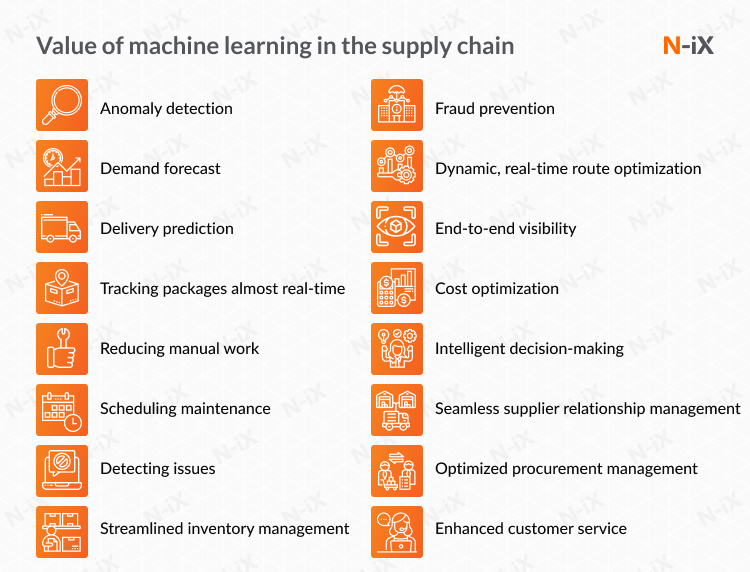
Industrial engineers are specialists who apply their knowledge of manufacturing technology in order to improve processes. They develop new methods and analyze existing systems. As a result of their expertise, they are highly valuable in research and development firms, engineering services, and consulting.
Although they work in a variety of settings, industrial engineers focus on reducing waste, improving production processes, and reducing internal costs. This group uses creativity and logic to develop new production processes. Some industrial engineers focus on automated manufacturing processes.
Engineers need to have a solid understanding of mathematics and other scientific principles. Additionally, they should be skilled in problem-solving skills and critical thinking. They should also be able to communicate well and work with others. Industrial engineers will need to be able see the entire system and recognize strengths and weaknesses of possible solutions.

A bachelor's degree is required in order to pursue a career as an industrial engineer. You will also need at least four years experience. After you have completed your bachelor's degree, you can apply for certification from the Society of Manufacturing Engineers. The master's degree will enable you to specialize in your chosen field.
They are highly sought-after and are expected to see their employment opportunities grow faster than average over the next ten. During this time, employment of this professional is projected to increase by 10 percent. The majority of work is done full-time, though hours can vary depending on the project. The median salary for an industrial engineer in Nashville is $73,856. However, depending on your geographic location, the employer, and your personal qualifications, the wage could vary from one employer the next.
If you are looking for an industrial engineering job, Nashville should be able to show off your professional and educational achievements. Also, you should take advantage of any industry-specific certifications. A professional engineer license is required if you plan to work for a government agency.
Many companies have interns who help them to learn the intricacies and nuances of industrial engineering. Interns can learn about lean manufacturing as well as value stream mapping and kaizen. You may be able, depending on your skills and company, to move up to management.

Whether you're working in a lab or an office, you'll need to develop interpersonal communication skills to work effectively with colleagues and managers. In addition to communicating with coworkers, you will also need to communicate well with customers and vendors.
With an increasing demand for industrial engineering professionals, you can expect to find jobs in a variety of industries. These include engineering service businesses, computer and electronics manufacturers, transportation equipment manufacturers and computer and electronics manufacturers. Many colleges offer 5-year industrial engineering degrees. While many graduates are able to find entry-level positions in multiple industries, a few are more focused on certain specialty areas, such as automated manufacturing processes.
FAQ
What does the term manufacturing industries mean?
Manufacturing Industries is a group of businesses that produce goods for sale. Consumers are people who purchase these goods. These companies employ many processes to achieve this purpose, such as production and distribution, retailing, management and so on. They manufacture goods from raw materials using machines and other equipment. This includes all types manufactured goods such as clothing, building materials, furniture, electronics, tools and machinery.
What are the main products of logistics?
Logistics is the process of moving goods from one point to another.
They include all aspects associated with transport including packaging, loading transporting, unloading storage, warehousing inventory management customer service, distribution returns and recycling.
Logisticians ensure that the product is delivered to the correct place, at the right time, and under safe conditions. Logisticians help companies improve their supply chain efficiency by providing information about demand forecasts and stock levels, production schedules, as well as availability of raw materials.
They coordinate with vendors and suppliers, keep track of shipments, monitor quality standards and perform inventory and order replenishment.
What are the responsibilities of a logistic manager?
Logistics managers ensure that goods arrive on time and are unharmed. This is done through his/her expertise and knowledge about the company's product range. He/she also needs to ensure adequate stock to meet demand.
Statistics
- [54][55] These are the top 50 countries by the total value of manufacturing output in US dollars for its noted year according to World Bank.[56] (en.wikipedia.org)
- According to the United Nations Industrial Development Organization (UNIDO), China is the top manufacturer worldwide by 2019 output, producing 28.7% of the total global manufacturing output, followed by the United States, Japan, Germany, and India.[52][53] (en.wikipedia.org)
- Job #1 is delivering the ordered product according to specifications: color, size, brand, and quantity. (netsuite.com)
- You can multiply the result by 100 to get the total percent of monthly overhead. (investopedia.com)
- In the United States, for example, manufacturing makes up 15% of the economic output. (twi-global.com)
External Links
How To
How to Use Lean Manufacturing in the Production of Goods
Lean manufacturing is a management system that aims at increasing efficiency and reducing waste. It was developed by Taiichi Okono in Japan, during the 1970s & 1980s. TPS founder Kanji Takoda awarded him the Toyota Production System Award (TPS). Michael L. Watkins published the "The Machine That Changed the World", the first book about lean manufacturing. It was published in 1990.
Lean manufacturing is often described as a set if principles that help improve the quality and speed of products and services. It emphasizes reducing defects and eliminating waste throughout the value chain. Lean manufacturing is called just-in-time (JIT), zero defect, total productive maintenance (TPM), or 5S. Lean manufacturing is about eliminating activities that do not add value, such as inspection, rework, and waiting.
Lean manufacturing improves product quality and costs. It also helps companies reach their goals quicker and decreases employee turnover. Lean manufacturing is a great way to manage the entire value chain including customers, suppliers, distributors and retailers as well as employees. Lean manufacturing can be found in many industries. Toyota's philosophy, for example, is what has enabled it to be successful in electronics, automobiles, medical devices, healthcare and chemical engineering as well as paper and food.
Five fundamental principles underlie lean manufacturing.
-
Define Value - Determine the value that your business brings to society. Also, identify what sets you apart from your competitors.
-
Reduce Waste - Remove any activity which doesn't add value to your supply chain.
-
Create Flow - Make sure work runs smoothly without interruptions.
-
Standardize and simplify - Make your processes as consistent as possible.
-
Develop Relationships: Establish personal relationships both with internal and external stakeholders.
Lean manufacturing is not a new concept, but it has been gaining popularity over the last few years due to a renewed interest in the economy following the global financial crisis of 2008. Many businesses have adopted lean production techniques to make them more competitive. In fact, some economists believe that lean manufacturing will be an important factor in economic recovery.
Lean manufacturing has many benefits in the automotive sector. These include improved customer satisfaction, reduced inventory levels, lower operating costs, increased productivity, and better overall safety.
It can be applied to any aspect of an organisation. This is because it ensures efficiency and effectiveness in all stages of the value chain.
There are three main types of lean manufacturing:
-
Just-in Time Manufacturing (JIT), also known as "pull system": This form of lean manufacturing is often referred to simply as "pull". JIT refers to a system in which components are assembled at the point of use instead of being produced ahead of time. This approach aims to reduce lead times, increase the availability of parts, and reduce inventory.
-
Zero Defects Manufacturing: ZDM ensures that no defective units leave the manufacturing plant. If a part is required to be repaired on the assembly line, it should not be scrapped. This applies to finished products, which may need minor repairs before they are shipped.
-
Continuous Improvement (CI: Continuous improvement aims to increase the efficiency of operations by constantly identifying and making improvements to reduce or eliminate waste. Continuous Improvement (CI) involves continuous improvement in processes, people, tools, and infrastructure.